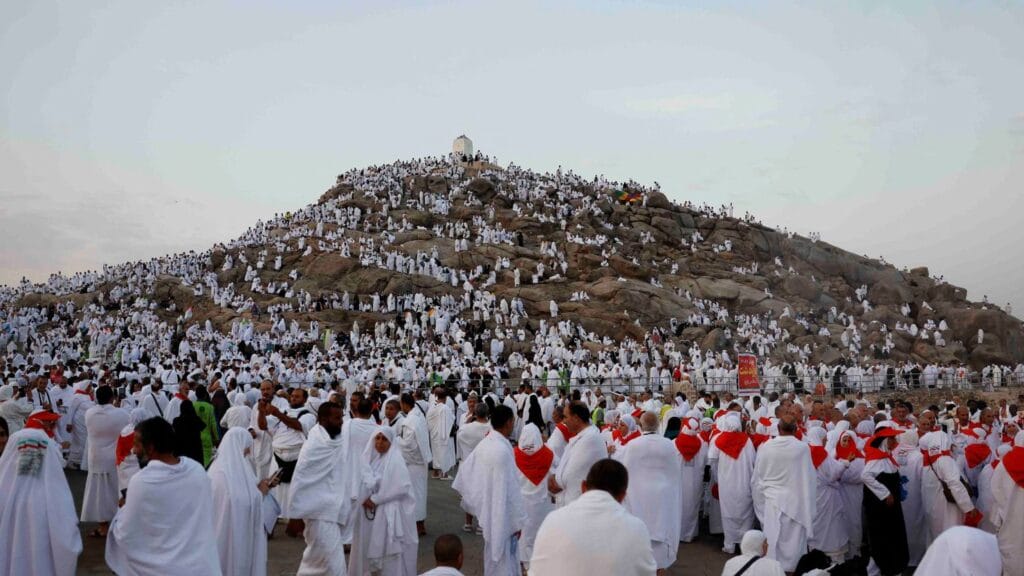Hajj, the annual Islamic pilgrimage to Mecca, is one of the five pillars of Islam and is considered a mandatory religious duty for all adult Muslims who are physically and financially able to undertake the journey at least once in their lifetime. The pilgrimage takes place during the Islamic month of Dhu al-Hijjah and is a time of great spiritual significance for Muslims around the world. The Hajj is a demonstration of the solidarity of the Muslim people and their submission to Allah, as well as an opportunity for believers to seek forgiveness and spiritual purification.
The Hajj pilgrimage is a deeply meaningful and transformative experience for Muslims, as it allows them to connect with their faith on a profound level and to strengthen their relationship with Allah. The pilgrimage is a time of reflection, prayer, and self-discipline, and it serves as a reminder of the importance of humility, gratitude, and compassion in the lives of believers. The Hajj is a time for Muslims to come together as a global community, to seek forgiveness for their sins, and to renew their commitment to living a life of faith and righteousness.
The Significance of Hajj in Islam: Understanding the Spiritual Importance
The Hajj holds immense spiritual significance in Islam, as it is a time for Muslims to demonstrate their submission to Allah and to seek forgiveness for their sins. The pilgrimage is a physical and spiritual journey that allows believers to connect with their faith in a deeply meaningful way and to strengthen their relationship with Allah. The Hajj is a time for Muslims to reflect on their lives, to seek forgiveness for their past mistakes, and to renew their commitment to living a life of faith and righteousness.
The Hajj is also a time for Muslims to come together as a global community, to embrace unity and brotherhood, and to demonstrate the solidarity of the Muslim people. The pilgrimage is a powerful reminder of the importance of humility, gratitude, and compassion in the lives of believers, and it serves as a time for Muslims to reflect on their own shortcomings and to seek forgiveness for their sins. The Hajj is a time for Muslims to come together in prayer, reflection, and self-discipline, and it is a time for believers to renew their commitment to living a life of faith and righteousness.
The Rituals of Hajj: A Step-by-Step Guide to the Pilgrimage
The Hajj pilgrimage consists of several rituals that are performed over the course of several days in Mecca. The first ritual is the Tawaf, which involves circling the Kaaba seven times in a counterclockwise direction as a demonstration of the unity of the Muslim people and their submission to Allah. After completing the Tawaf, pilgrims perform the Sa’i, which involves walking seven times between the hills of Safa and Marwah as a reenactment of Hagar’s search for water for her son Ishmael.
The next ritual is the Wuquf at Arafat, which takes place on the 9th day of Dhu al-Hijjah and involves standing in prayer at Mount Arafat from noon until sunset. This ritual symbolizes the importance of seeking forgiveness and spiritual purification. After the Wuquf at Arafat, pilgrims perform the Rami al-Jamarat, which involves throwing pebbles at three pillars that represent Satan’s temptation of Abraham. This ritual symbolizes the rejection of evil and the commitment to living a life of faith and righteousness. Finally, pilgrims perform the Tawaf al-Ifadah and the Sa’i al-Marwah before returning to Mecca to complete the Hajj pilgrimage.
Seeking Forgiveness through Hajj: How the Pilgrimage Offers Spiritual Cleansing
The Hajj pilgrimage offers believers the opportunity to seek forgiveness for their sins and to undergo spiritual cleansing through prayer, reflection, and self-discipline. The pilgrimage is a time for Muslims to reflect on their lives, to seek forgiveness for their past mistakes, and to renew their commitment to living a life of faith and righteousness. The rituals of Hajj are designed to help pilgrims purify their hearts and souls and to seek forgiveness from Allah for their sins.
The Wuquf at Arafat, in particular, is a powerful ritual that symbolizes the importance of seeking forgiveness and spiritual purification. Standing in prayer at Mount Arafat from noon until sunset allows pilgrims to reflect on their lives, seek forgiveness for their past mistakes, and renew their commitment to living a life of faith and righteousness. The Rami al-Jamarat ritual also symbolizes the rejection of evil and the commitment to living a life of faith and righteousness, as pilgrims throw pebbles at three pillars that represent Satan’s temptation of Abraham.
The Spiritual Purification of Hajj: Reflecting on the Transformational Experience
The Hajj pilgrimage is a deeply transformative experience for Muslims, as it allows them to undergo spiritual purification through prayer, reflection, and self-discipline. The pilgrimage is a time for believers to reflect on their lives, seek forgiveness for their past mistakes, and renew their commitment to living a life of faith and righteousness. The rituals of Hajj are designed to help pilgrims purify their hearts and souls and to seek forgiveness from Allah for their sins.
The Tawaf ritual, which involves circling the Kaaba seven times in a counterclockwise direction, is a powerful demonstration of the unity of the Muslim people and their submission to Allah. This ritual allows pilgrims to connect with their faith on a profound level and to strengthen their relationship with Allah. The Sa’i ritual, which involves walking seven times between the hills of Safa and Marwah, is a reenactment of Hagar’s search for water for her son Ishmael and serves as a reminder of the importance of humility, gratitude, and compassion in the lives of believers.
The Global Community of Hajj: Embracing Unity and Brotherhood in Islam
The Hajj pilgrimage is a time for Muslims from around the world to come together as a global community, to embrace unity and brotherhood, and to demonstrate the solidarity of the Muslim people. The pilgrimage is a powerful reminder of the importance of humility, gratitude, and compassion in the lives of believers, and it serves as a time for Muslims to reflect on their own shortcomings and to seek forgiveness for their sins. The rituals of Hajj are designed to help pilgrims purify their hearts and souls and to seek forgiveness from Allah for their sins.
The Tawaf ritual, which involves circling the Kaaba seven times in a counterclockwise direction, is a powerful demonstration of the unity of the Muslim people and their submission to Allah. This ritual allows pilgrims to connect with their faith on a profound level and to strengthen their relationship with Allah. The Sa’i ritual, which involves walking seven times between the hills of Safa and Marwah, is a reenactment of Hagar’s search for water for her son Ishmael and serves as a reminder of the importance of humility, gratitude, and compassion in the lives of believers.
The Lasting Impact of Hajj on the Pilgrims and the Muslim Ummah
In conclusion, the Hajj pilgrimage holds immense spiritual significance in Islam and offers believers the opportunity to seek forgiveness for their sins and undergo spiritual purification through prayer, reflection, and self-discipline. The pilgrimage is a time for Muslims from around the world to come together as a global community, embrace unity and brotherhood, and demonstrate the solidarity of the Muslim people. The rituals of Hajj are designed to help pilgrims purify their hearts and souls and seek forgiveness from Allah for their sins.
The lasting impact of Hajj on pilgrims is profound, as it allows them to connect with their faith on a profound level, strengthen their relationship with Allah, reflect on their lives, seek forgiveness for past mistakes, renew their commitment to living a life of faith and righteousness, embrace unity and brotherhood with fellow Muslims from around the world. The transformative experience of Hajj serves as a powerful reminder of the importance of humility, gratitude, compassion in the lives of believers. It offers an opportunity for spiritual cleansing that has a lasting impact on both individual pilgrims and the Muslim Ummah as a whole.

